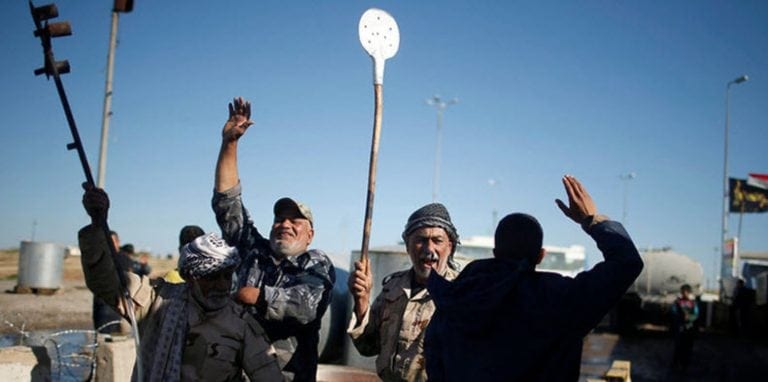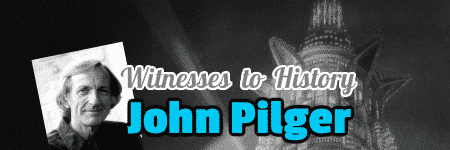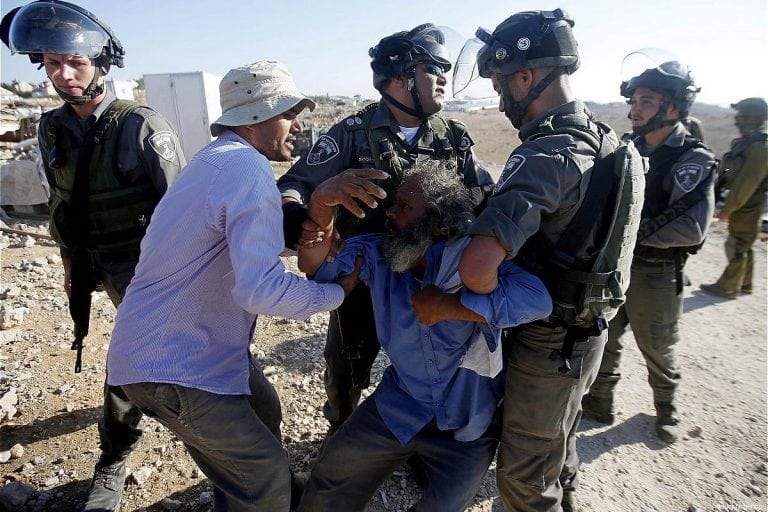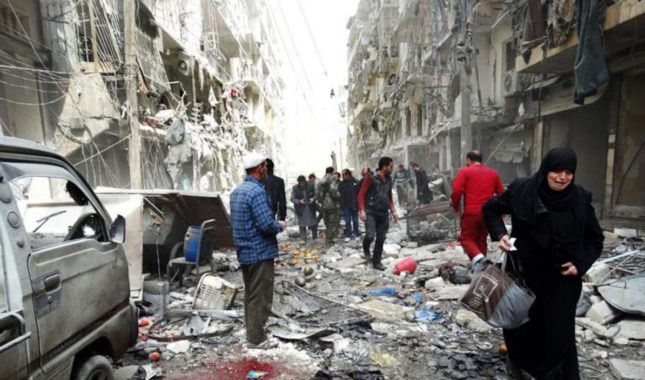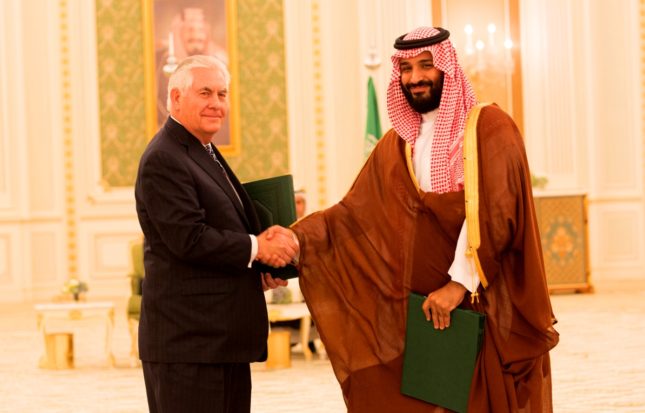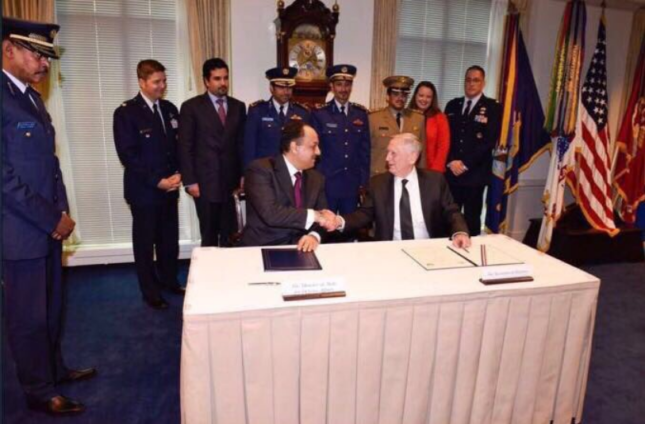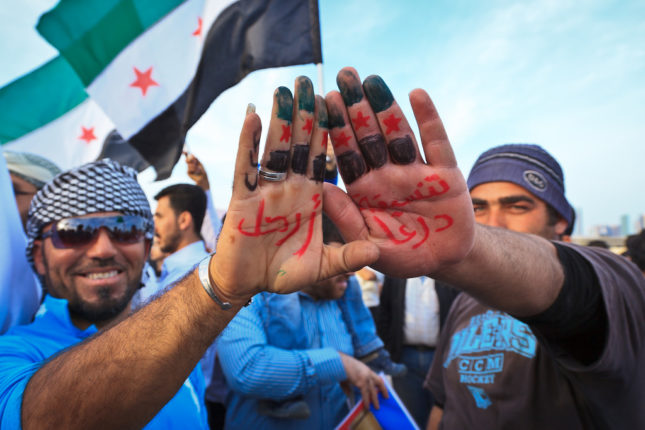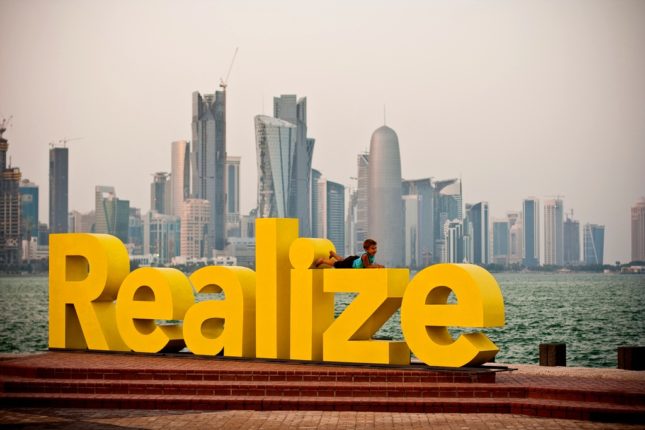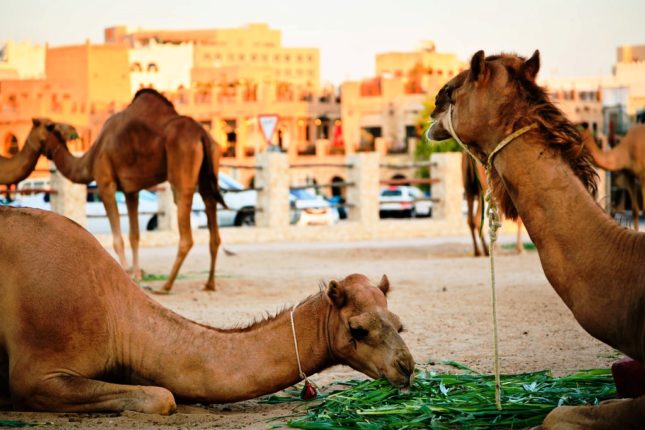When I first went to Palestine as a young reporter in the 1960s, I stayed on a kibbutz. The people I met were hard-working, spirited and called themselves socialists. I liked them.
One evening at dinner, I asked about the silhouettes of people in the far distance, beyond our perimeter.
.
“Arabs”, they said, “nomads”. The words were almost spat out. Israel, they said, meaning Palestine, had been mostly wasteland and one of the great feats of the Zionist enterprise was to turn the desert green.
.
They gave as an example their crop of Jaffa oranges, which was exported to the rest of the world. What a triumph against the odds of nature and humanity’s neglect.
.
It was the first lie. Most of the orange groves and vineyards belonged to Palestinians who had been tilling the soil and exporting oranges and grapes to Europe since the eighteenth century. The former Palestinian town of Jaffa was known by its previous inhabitants as “the place of sad oranges”.
On the kibbutz, the word “Palestinian” was never used. Why, I asked. The answer was a troubled silence.
Propaganda – of the kind McEwan delivered, with its token slap on the wrists for his delighted hosts – is a weapon for the oppressors of Palestine. Like sugar, it insinuates almost everything today. Understanding and deconstructing state and cultural propaganda is our most critical task. We are being frog-marched into a second cold war, whose eventual aim is to subdue and balkanise Russia and intimidate China.
All over the colonised world, the true sovereignty of indigenous people is feared by those who can never quite cover the fact, and the crime, that they live on stolen land.
.
Denying people’s humanity is the next step – as the Jewish people know only too well. Defiling people’s dignity and culture and pride follows as logically as violence.
.
In Ramallah, following an invasion of the West Bank by the late Ariel Sharon in 2002, I walked through streets of crushed cars and demolished houses, to the Palestinian Cultural Centre. Until that morning, Israeli soldiers had camped there.
.
I was met by the centre’s director, the novelist, Liana Badr, whose original manuscripts lay scattered and torn across the floor. The hard drive containing her fiction, and a library of plays and poetry had been taken by Israeli soldiers. Almost everything was smashed, and defiled.
.
Not a single book survived with all its pages; not a single master tape from one of the best collections of Palestinian cinema. The soldiers had urinated and defecated on the floors, on desks, on embroideries and works of art. They had smeared faeces on children’s paintings and written – in shit – “Born to kill”.
.
Liana Badr had tears in her eyes, but she was unbowed. She said, “We will make it right again.”
What enrages those who colonise and occupy, steal and oppress, vandalise and defile is the victims’ refusal to comply. And this is the tribute we all should pay the Palestinians. They refuse to comply. They go on. They wait – until they fight again. And they do so even when those governing them collaborate with their oppressors.
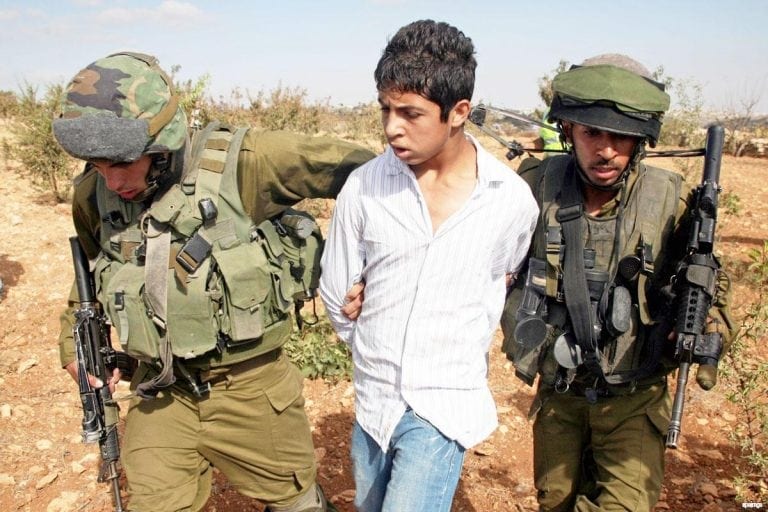
Arrest and mistreatment by the Israelis is almost an inevitable rite of passage for most Palestinian youths.
.
In the midst of the 2014 Israeli bombardment of Gaza, the Palestinian journalist Mohammed Omer never stopped reporting. He and his family were stricken; he queued for food and water and carried it through the rubble. When I phoned him, I could hear the bombs outside his door. He refused to comply.
.
Mohammed’s reports, illustrated by his graphic photographs, were a model of professional journalism that shamed the compliant and craven reporting of the so-called mainstream in Britain and the United States. The BBC notion of objectivity – amplifying the myths and lies of authority, a practice of which it is proud – is shamed every day by the likes of Mohamed Omer.
.
For more than 40 years, I have recorded the refusal of the people of Palestine to comply with their oppressors: Israel, the United States, Britain, the European Union.
.
Since 2008, Britain alone has granted licences for export to Israel of arms and missiles, drones and sniper rifles, worth £434 million.
.
Those who have stood up to this, without weapons, those who have refused to comply, are among Palestinians I have been privileged to know:
.
My friend, the late Mohammed Jarella, who toiled for the United Nations agency UNRWA, in 1967 showed me a Palestinian refugee camp for the first time. It was a bitter winter’s day and schoolchildren shook with the cold. “One day …” he would say. “One day …”
.
Mustafa Barghouti, whose eloquence remains undimmed, who described the tolerance that existed in Palestine among Jews, Muslims and Christians until, as he told me, “the Zionists wanted a state at the expense of the Palestinians.”
.
Dr. Mona El-Farra, a physician in Gaza, whose passion was raising money for plastic surgery for children disfigured by Israeli bullets and shrapnel. Her hospital was flattened by Israeli bombs in 2014.
.
Dr. Khalid Dahlan, a psychiatrist, whose clinics for children in Gaza -- children sent almost mad by Israeli violence -- were oases of civilization.
.
Fatima and Nasser are a couple whose home stood in a village near Jerusalem designated “Zone A and B”, meaning that the land was declared for Jews only. Their parents had lived there; their grandparents had lived there. Today, the bulldozers are laying roads for Jews only, protected by laws for Jews only.
.
It was past midnight when Fatima went into labour with their second child. The baby was premature; and when they arrived at a checkpoint with the hospital in view, the young Israeli soldier said they needed another document.
.
Fatima was bleeding badly. The soldier laughed and imitated her moans and told them, “Go home”. The baby was born there in a truck. It was blue with cold and soon, without care, died from exposure. The baby’s name was Sultan.
.
For Palestinians, these will be familiar stories. The question is: why are they not familiar in London and Washington, Brussels and Sydney?
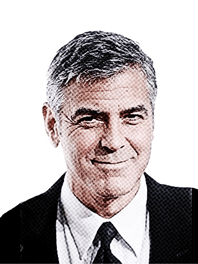
Interloper maximus George Clooney, Mr Hollywood activist, has never found an imperialist war he did not justify or urge others to support. Useful idiot or CIA's man in the entertainment industry's capital. Either way, Clooney is liberal arrogance at its most insidious. Part of a breed of lightweights meddling in serious causes.
[dropcap]I[/dropcap]n Syria, a recent liberal cause -- a George Clooney cause -- is bankrolled handsomely in Britain and the United States, even though the beneficiaries, the so-called rebels, are dominated by jihadist fanatics, the product of the invasion of Afghanistan and Iraq and the destruction of modern Libya.
And yet, the longest occupation and resistance in modern times is not recognized. When the United Nations suddenly stirs and defines Israel as an apartheid state, as it did this year, there is outrage – not against a state whose “core purpose” is racism but against a UN commission that dared break the silence.
.
“Palestine,” said Nelson Mandela, “is the greatest moral issue of our time.”
.
Why is this truth suppressed, day after day, month after month, year after year? On Israel – the apartheid state, guilty of a crime against humanity and of more international law-breaking than any other-- the silence persists among those who know and whose job it is to keep the record straight.
.
On Israel, so much journalism is intimidated and controlled by a groupthink that demands silence on Palestine while honourable journalism has become dissidence: a metaphoric underground.
A single word – “conflict” – enables this silence. “The Arab-Israeli conflict”, intone the robots at their tele-prompters. When a veteran BBC reporter, a man who knows the truth, refers to “two narratives”, the moral contortion is complete.
.
There is no conflict, no two narratives, with their moral fulcrum. There is a military occupation enforced by a nuclear-armed power backed by the greatest military power on earth; and there is an epic injustice.
.
The word “occupation” may be banned, deleted from the dictionary. But the memory of historical truth cannot be banned: of the systemic expulsion of Palestinians from their homeland. “Plan D” the Israelis called it in 1948.
.
The Israeli historian Benny Morris describes how David Ben-Gurion, Israel’s first prime minister, was asked by one of his generals: “What shall we do with the Arabs?”
.
The prime minister, wrote Morris, “made a dismissive, energetic gesture with his hand”. “Expel them!” he said.
.
Seventy years later, this crime is suppressed in the intellectual and political culture of the West. Or it is debatable, or merely controversial. Highly-paid journalists and eagerly accept Israeli government trips, hospitality and flattery, then are truculent in their protestations of independence. The term, “useful idiots”, was coined for them.

McEwan: smooth apologists for a rotten status quo
In 2011, I was struck by the ease with which one of Britain’s most acclaimed novelists, Ian McEwan, a man bathed in the glow of bourgeois enlightenment, accepted the Jerusalem Prize for literature in the apartheid state.
.
Would McEwan have gone to Sun City in apartheid South Africa? They gave prizes there, too, all expenses paid. McEwan justified his action with weasel words about the independence of “civil society”.
.
Propaganda – of the kind McEwan delivered, with its token slap on the wrists for his delighted hosts – is a weapon for the oppressors of Palestine. Like sugar, it insinuates almost everything today. Understanding and deconstructing state and cultural propaganda is our most critical task. We are being frog-marched into a second cold war, whose eventual aim is to subdue and balkanise Russia and intimidate China.
.
When Donald Trump and Vladimir Putin spoke privately for more than two hours at the G20 meeting in Hamburg, apparently about the need not to go to war with each other, the most vociferous objectors were those who have commandeered liberalism, such as the Zionist political writer of the Guardian.”
.
“No wonder Putin was smiling in Hamburg,” wrote Jonathan Freedland. “He knows he has succeeded in his chief objective: he has made American weak again.” Cue hissing for Evil Vlad.
These propagandists have never known war but they love the game they play. What Ian McEwan calls “civil society” has become a rich source of related propaganda.
.
Take a term often used by the guardians of civil society -- “human rights”. Like another noble concept, “democracy”, “human rights” has been all but emptied of its meaning and purpose.
Like “peace process” and “road map”, human rights in Palestine have been hijacked by Western governments and the corporate NGOs they fund and which claim a quixotic moral authority.
So when Israel is called upon by governments and NGOs to “respect human rights” in Palestine, nothing happens, because they all know there is nothing to fear.
.
Mark the silence of the European Union, which accommodates Israel while refusing to maintain its commitments to the people of Gaza -- such as keeping the lifeline of the Rafah border crossing open: a measure it agreed to as part of its role in the cessation of fighting in 2014. A seaport for Gaza – agreed by Brussels in 2014 – has been abandoned.
.
The UN commission I have referred to – its full name is the UN Economic and Social Commission for Western Asia -- described Israel as, and I quote, “designed for the core purpose” of racial discrimination.
.
Millions understand this. What the governments in London, Washington, Brussels and Tel Aviv cannot control is that humanity at street level is changing perhaps as never before. People everywhere are stirring and more aware, in my view, than ever before. Some are already in open revolt. The atrocity of Grenfell Tower in London has brought communities together in a vibrant almost national resistance.
.
Thanks to a people’s campaign, the judiciary is today examining the evidence of a possible prosecution of Tony Blair for war crimes. Even if this fails, it is a crucial development, dismantling yet another barrier between the public and its recognition of the voracious nature of the crimes of state power – the systemic disregard for humanity perpetrated in Iraq, in Grenfell Tower, in Palestine. Those are the dots waiting to be joined.
.
For most of the 21st century, the fraud of corporate power posing as democracy has depended on the propaganda of distraction: largely on a cult of “me-ism” designed to overwhelm our sense of looking out for others, of acting together, of social justice and internationalism.
.
Class, gender and race were wrenched apart. Only the personal became the political and the media the message. The promotion of bourgeois privilege was presented as “progressive” politics. It wasn’t. It never is. It is the promotion of privilege, and power.
.
Among young people, internationalism has found a vast new audience. Look at the support for Jeremy Corbyn and the reception the G20 circus in Hamburg received. By understanding the truth and imperatives of internationalism, we understand the struggle of Palestine. Mandela put it this way: “We know only too well that our freedom is incomplete without the freedom of the Palestinians.”
.
At the heart of the Middle East is the histroic injustice in Palestine. Until that is resolved, and Palestinians have their freedom and homeland, and Israelis are Palestinians equality before the law, there will be no peace in the region, or perhaps anywhere.
.
What Mandela was saying is that freedom itself is precarious while powerful governments can deny justice to others, terrorise others, imprison and kill others, in our name. Israel certainly understands the threat that one day it might have to be normal.
.
That is why its ambassador to Britain is Mark Regev, well known to journalists as a professional propagandist, and why the “huge bluff” of charges of anti-Semitism, as Ilan Pappe called it, was allowed to contort the Labour Party and undermine Jeremy Corbyn as leader. The point is, it did not succeed.
.
Events are moving quickly now. The remarkable Boycott, Disinvestment and Sanctions campaign (BDS) is succeeding, day by day; cities and towns, trade unions and student bodies are endorsing it. The British government’s attempt to restrict local councils from enforcing BDS has failed in the courts.
.
These are not straws in the wind. When the Palestinians rise again, as they will, they may not succeed at first -- but they will eventually if we understand that they are us, and we are them.
.
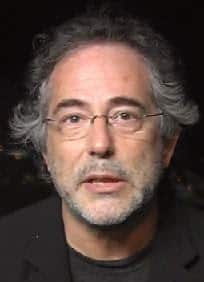
 In his zeal to prove to his antagonists in the War Party that he is as bloodthirsty as their champion, Hillary Clinton, and more manly than Barack Obama, Trump seems to have gone “play-crazy” -- acting like an unpredictable maniac in order to terrorize the Russians into forcing some kind of dramatic concessions from their Syrian allies, or risk Armageddon.However, the “play-crazy” gambit can only work when the leader is, in real life, a disciplined and intelligent actor, who knows precisely what actual boundaries must not be crossed. That ain’t Donald Trump -- a pitifully shallow and ill-disciplined man, emotionally handicapped by obscene privilege and cognitively crippled by white American chauvinism. By pushing Trump into a corner and demanding that he display his most bellicose self, or be ceaselessly mocked as a “puppet” and minion of Russia, a lesser power, the War Party and its media and clandestine services have created a perfect storm of mayhem that may consume us all.— Glen Ford, Editor in Chief, Black Agenda Report
In his zeal to prove to his antagonists in the War Party that he is as bloodthirsty as their champion, Hillary Clinton, and more manly than Barack Obama, Trump seems to have gone “play-crazy” -- acting like an unpredictable maniac in order to terrorize the Russians into forcing some kind of dramatic concessions from their Syrian allies, or risk Armageddon.However, the “play-crazy” gambit can only work when the leader is, in real life, a disciplined and intelligent actor, who knows precisely what actual boundaries must not be crossed. That ain’t Donald Trump -- a pitifully shallow and ill-disciplined man, emotionally handicapped by obscene privilege and cognitively crippled by white American chauvinism. By pushing Trump into a corner and demanding that he display his most bellicose self, or be ceaselessly mocked as a “puppet” and minion of Russia, a lesser power, the War Party and its media and clandestine services have created a perfect storm of mayhem that may consume us all.— Glen Ford, Editor in Chief, Black Agenda Report 
